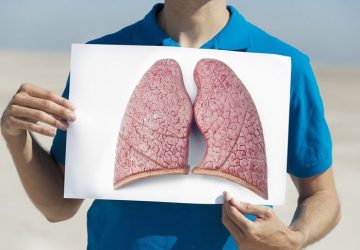Receiving the news of lung cancer can be an intimidating experience, particularly as one begins to navigate through the myriad of available treatment options. The expansion of medical knowledge has added numerous possibilities to consider, making it essential for patients and their loved ones to comprehend the range of treatments to take charge of their care. A closer examination of the key treatment modalities can empower them to participate actively in their treatment planning.

Surgical Options:Surgery is a common approach for treating non-small cell lung cancer that has not metastasized. Its chief goal is the complete removal of the cancerous growth and a surrounding area of healthy lung tissue. The type of procedure conducted depends on the cancer's size, type, and precise location in the lung:- Wedge resection targets a specific, triangular slice of the lung that includes the tumor.- Lobectomy involves the removal of an entire lobe of the lung and is particularly effective for larger tumors situated in one lobe.- Pneumonectomy may be necessary when the cancer is extensive or centrally located, leading to the removal of the entire lung.Post-surgical care is vital, incorporating consistent follow-ups to check for any signs of cancer recurrence.
Radiation Therapy:This therapy harnesses high-energy beams, akin to X-rays, to destroy the cancer cells. Its deployment varies:- It might be the primary course of action for patients not suitable for surgery.- Following surgery, it aims to destroy residual cancer cells.- It provides symptom relief and improves life quality in later cancer stages.Radiation is designed to minimize harm to nearby healthy tissue, though it can induce certain side effects like fatigue.
Chemotherapy:Chemotherapy uses medications designed to eliminate quickly dividing cells, like those of cancer. It has multiple applications:- It can shrink tumors before surgery to enable their removal.- Following surgery, it aims to eradicate any cancer cells left behind.- It can be utilized alongside radiation therapy to tackle aggressive cancer forms.- When surgical interventions are not options, it may be used solely.Despite its efficacy, chemotherapy is also known for side effects such as hair loss and nausea, although these are generally temporary.
Targeted Drug Therapy:This novel approach focuses on peculiarities found within the cancer cells. It impedes cell growth and multiplication while generally leaving healthy cells unharmed and is often used for advanced or recurrent non-small cell lung cancer. Patients might experience side effects like skin issues or digestive disturbances.
Immunotherapy:Leveraging the body's own immune system, this therapy aims to attack and destroy cancer cells. It's particularly beneficial for individuals who have not responded well to standard treatments or who have specific lung cancer variants. Side effects vary according to the drug but may include symptoms akin to those of the flu.
Successfully maneuvering through the complexity of lung cancer treatment requires access to accurate information, enabling patients and their support networks to make well-founded decisions. Active engagement with oncology specialists, inquisitiveness, and a dedication to learning the advantages and drawbacks of each treatment avenue elicits the very knowledgeable and beneficial care decisions.
Explore the Tranquil Bliss of Idyllic Rural Retreats

Ultimate Countdown: The 20 Very Legendary Gaming Consoles Ever!

Understanding Halpin and its Influence

Affordable Full Mouth Dental Implants Near You

Discovering Springdale Estates

Illinois Dentatrust: Comprehensive Overview

Embark on Effortless Adventures: Unveiling the Top in Adventures Made Easy Outdoor Equipment

Unveiling Ossur Valves: Innovation in Prosthetics

Unlock the Full Potential of Your RAM 1500: Master the Art of Efficient Towing!
